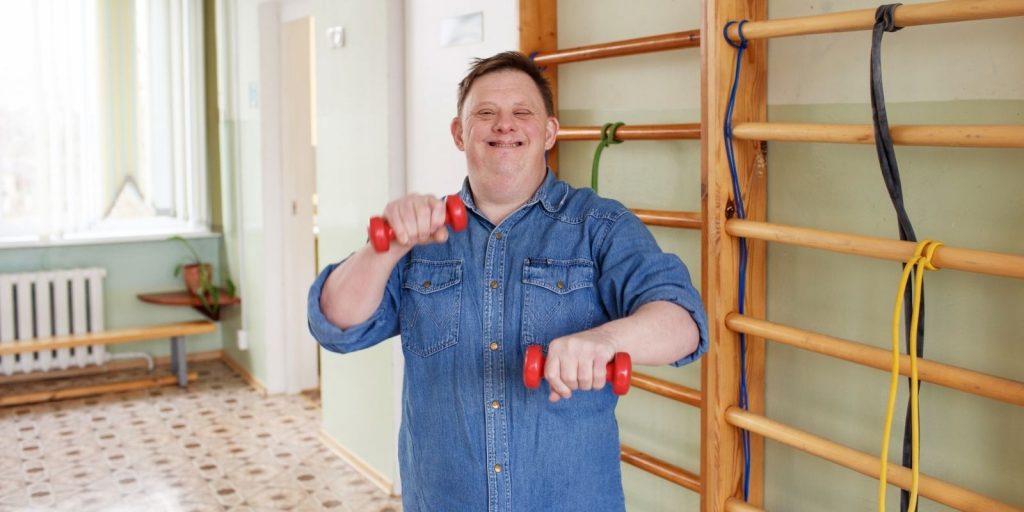
Adult health
Heart.
Heart problems are very common in people with Down syndrome.
Regular medical reviews should be carried out throughout life. This will allow prompt diagnosis and management of previously undiagnosed cardiac disorders or new problems having developed.

Eyes.
Ears and hearing.
Early onset age-related hearing loss (early onset presbycusis) is common in individuals with Down syndrome. Hearing loss may start in early adulthood.
A yearly hearing assessment will detect the onset of the hearing loss.

Thyroid.

Thyroid problems are more common in people with Down syndrome than in the general population.
People with Down syndrome need regular screening blood tests throughout their lives.
Coeliac disease.
Coeliac disease is a type of malabsorption where the bowels are unable to absorb particular nutrients from food.
Coeliac disease is more common in people with Down syndrome.
Treatment of coeliac disease is by special diet excluding gluten. This should be supervised by a dietitian.

Neck instability.

The joints at the top of the spine and at the base of the skull allow us to shake and nod our heads.
In people with Down syndrome, the ligaments (tissue that connects one bone to another bone, holding a joint together) are stretchier. So joints may be looser and more flexible which can lead to slippage of the vertebrae (the bones that surround and protect the spinal cord).
Problems can develop if a vertebra slips too far and puts pressure on the nerves in the spinal cord. This can be a gradual process or it can happen if a person is jolted suddenly such as when a whiplash injury occurs.
A doctor suspecting that neck instability may be present will probably refer that person to either an orthopedic surgeon or a spinal neurosurgeon.

Sexual health.

People with a learning disability have a right to express emotions and sexuality and develop relationships as an important part of a full and equal life based on a right to independence, control and life choices.
It is important that vulnerable children, young people and adults are protected but this should not be at the cost of respecting their human need to love and to be loved, to have friends, and to express their sexuality (in ways that suit them and which are acceptable).
Mental health.
Many people with Down syndrome experience positive mental wellbeing and do not exhibit signs of poor mental health.
However, there are certain factors that may make people with Down syndrome more susceptible to poorer mental health.
Certain biological differences, as well as everyday stresses that people with Down syndrome may find harder to deal with, may make people with the condition more susceptible to mood,
emotional and other mental health problems.

Depression.

Depression is at least as common in people with Down syndrome as it is in the general population and the effects are the same.
As for all people who experience depression, it is important to ask for help. It is not normal for someone to feel depressed just because they have Down syndrome.
Remember to be patient and that depression is an illness, and that most people get better with treatment and support.
Epilepsy.
Over 80% of people with Down syndrome and dementia develop seizures and this may be the presenting symptom of the dementia.
There may be a change in seizure frequency, pattern or severity associated with dementia compared with their previous epilepsy characteristics.

Alzheimer's disease.

Alzheimer’s disease causes dementia. Its symptoms include impaired thought, impaired speech, and confusion.
The risk that a person with Down syndrome will develop Alzheimer’s disease increases with age at a similar rate as it does in the general population, but 30 to 40 years sooner than is the case for people without Down syndrome.
Our work in health.

Inclusive health
We advocate for everyone to enjoy the highest attainable standard of health, without discrimination.

